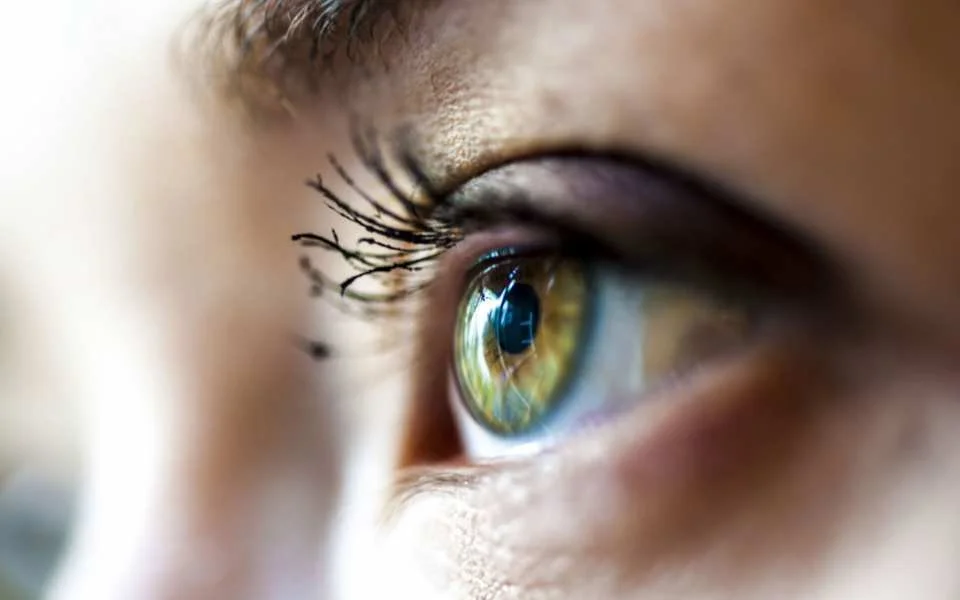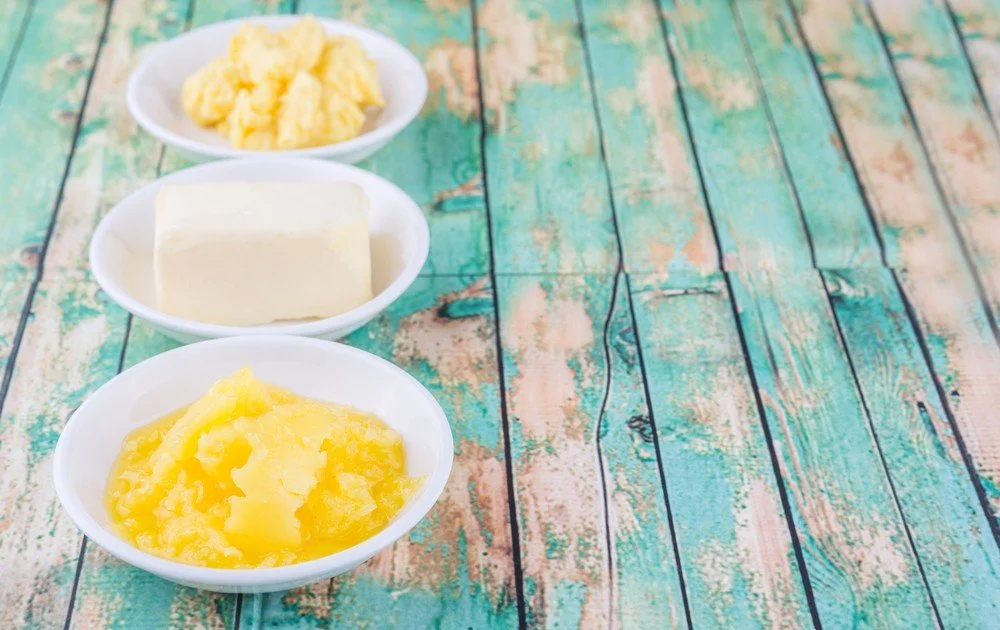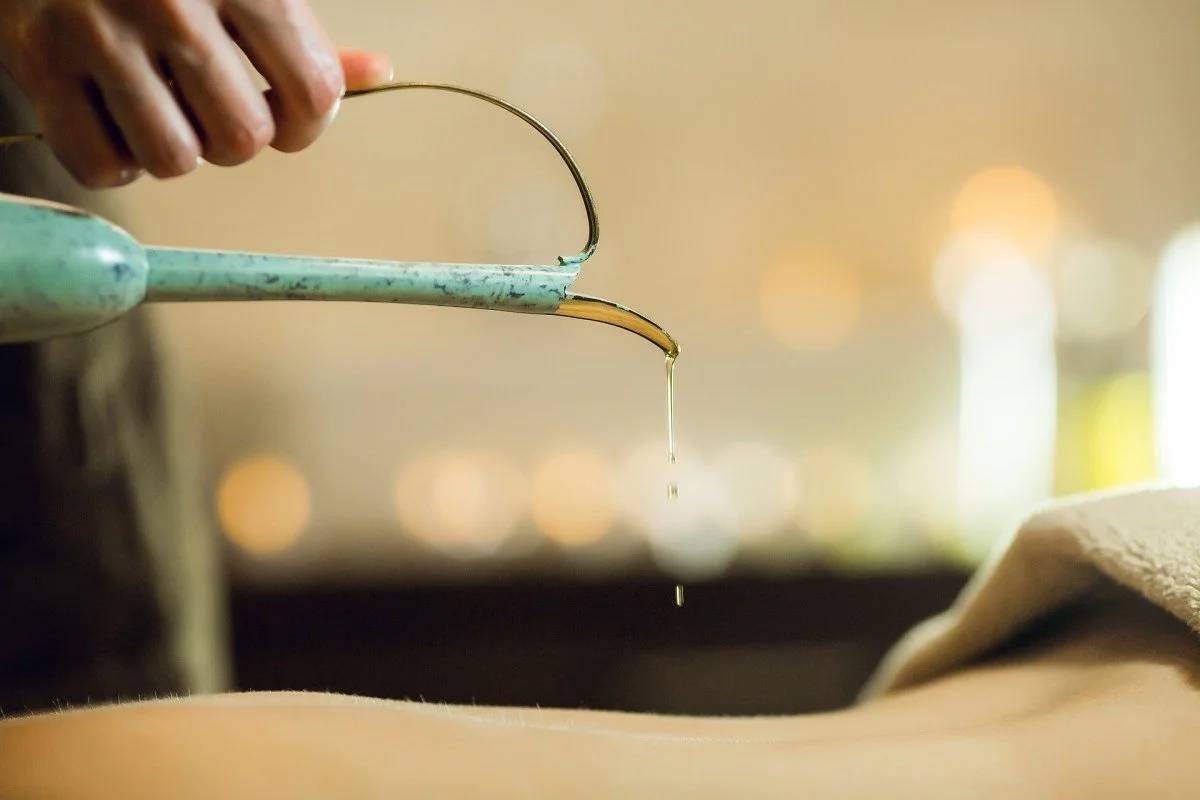Shiftwork: Ayurveda and Doing it as Healthily as Possible
Do you work night Shift and struggle to maintain good health?
How can you optimise your precious sleep while working shifts?
Would you like some simple tips blending ancient wisdom and modern science for reducing the potentially harmful effects of regular shiftwork?
Notes:
This article is written with the express intention of helping people who regularly work shifts/nightshift to maintain the highest level of health possible. It is noted however, that long-term night working violates the natural cycles of the human body, and thus should be minimised if ever practically possible
While much of this article is in alignment with common recommendations from a conventional, western-scientific health standpoint, it also incorporates much wisdom from the Eastern health sciences, particularly Ayurvedic medicine. Ayurveda – defined as a complete ‘science of life’ – is recognised by the World Health Organisation as the world’s oldest, continuous system of healthcare, and provides a far deeper view of shiftwork, and what can be done to minimise its impacts. I hope you find it helpful.
NATURE’S DAILY CLOCK (CYCLES) & THE PROBLEM OF NIGHT SHIFT
Traveling around the world, I don’t think there’s any group of workers I symphathise with more than shift workers. This is because of the incredible demands shift work puts on our physiology. In order to fully understand this, we need to understand how our bodies are designed to function for optimal health and performance. I outlined this in Chapter 2 of my first book, ‘Ancient Wisdom for Modern Health’, and have included a brief summary below.
According to Ayurveda, our 24-hour daily clock is made up of six interconnected four-hour cycles. Each of these cycles specifically supports specific physiological functions. Either consciously or unconsciously, individuals and cultures that have tended to resist illness and enjoy relatively disease-free lives have understood that certain activities best support the internal functioning of the body according to the different times of the day.
As the sun begins to set and day shifts towards night, Mother Nature starts to slow down in readiness for her night cycle. From around 6pm, the earthy qualities of heaviness and slowness begin to take over. This period is designed to wind us down from the incessant activity of the day. As the sun or ‘universal fire’ goes down, so too our digestive fire, and indeed all our internal organs, organ channels, nervous system and biological systems start to retire for the evening. Like a lotus, everything closes down in order to take full advantage of the peak cleansing and rejuvenation cycle to come—the 10pm to 2am cycle.
Food that we do not digest by around 10pm sows the seeds of sickness and disease.
The ancients knew that eating lightly at night was the secret to ‘the sleep of the gods’. When we do this, our body can fully focus its energies on eliminating the impurities and stresses that have accumulated during the day.
As human beings, we are just not designed to eat much in the evening. We are designed to eat our main meal in the middle of the day. This is when the sun and our digestive fire are at their peak. Just as the sun sets in the evening and disappears by nightfall, our inner digestive sun, or ‘fire’, also sets.
Large, heavy meals at night are not only likely to be poorly digested (as our internal fire is not so strong), but totally compromise our ‘nightly rejuvenation cycle’. (see below). This is why traditionally the evening meal was known as ‘supper’. If one did eat after sunset it was only something that could be ‘sipped’ or ‘supped’.
Traditional cultures understood that the natural cycle from 10pm-2am is the most critical of all in terms of our lifelong health and wellbeing. The purpose of this cycle – known in Ayurveda as the nighttime rejuvenation cycle – is to digest any impurities and fatigue that we have accumulated during the day. Between 10pm and 2am is the time when our bodies are at their peak capacity for repairing cells, dissolving stress, eliminating toxins (detoxifying), and generally rejuvenating our entire system. To maximise this internal rejuvenation and cleansing, ideally it is a time when we are ‘asleep’! (Don’t worry we’ll discuss what to do re; sleep and nightshift shortly).
If we skimp on sleep during our body’s peak rejuvenation time (10pm–2am), we generally won’t be able to process excess fats and impurities as effectively, repair tissues and neutralise unwanted metabolic byproducts as effectively, or eliminate excess sugars and strengthen our immune system as effectively.
The 2am – 6am cycle is where our bodies are designed to complete the internal cleansing and rejuvenation work begun in the previous cycle.
Shift workers commonly refer to this time – from around 3am to 6am – as ‘zombie time’. The more scientific term is the ‘circadian nadir’—‘circadian’ referring to the ‘daily cycles’ and ‘nadir’ meaning ‘low point’. This is the time when most of our physiological cycles, other than those related to repair and revitalisation, are at their lowest levels of functioning. Generally speaking, it is not a time for high-level performance.
The four-hour 10am-2pm window is known to be dominated by the qualities of fire and heat. At this time of day, the sun or universal fire is at the peak of its power. Similarly, our body’s central fire, our digestive fire, is also at the peak of its power. This is when we are maximally equipped physiologically to eat our main meal of the day.
Summary: In Mother Nature’s world, and according to the eternal laws of health, ‘timing is everything’. It’s not just what we do, but when we do it.
Now that we have a basic understanding how our bodies are designed to function in an ideal situation or on a normal workday schedule, we can now look at what we can do to minimise any negative impacts when doing shiftwork. To make this as easy as possible, I’ve listed the 5 most important areas within the letters of the word shift – S.H.I.F.T.
Try to remember and do these 5 key things as best as you can whenever you are regularly on night shift.
S – SLEEP
Sleep is without doubt the single most important factor for you as a shift worker. Obviously, sleep is critically important for anyone’s health, wellbeing and performance, however, because you are missing out on the best quality sleep – within the nighttime rejuvenation cycle of 10pm – 2am, the quality of your sleep becomes even more important. The fundamental and absolutely critical key to this, is that …
YOUR SLEEP IS IDEALLY UNINTERRUPTED AND OCCURS ‘BEFORE’ SIGNIFICANT FOOD INTAKE (YOUR MAIN MEAL).
Uninterrupted sleep is better than sleep broken up into two or three shorter phases. The reason is that uninterrupted sleep better allows the body to get into its deeper sleep zone when much of the body’s repair and regeneration takes place.
Eating after and not before the main sleep cycle is critical because food in the stomach takes up a lot of the body’s resources for digestion. The energy and resources that have to go to your stomach to try and digest the food, is energy and resources diverted away from the rest of your body that would otherwise go to repairing, detoxing, revitalising and rebalancing. Just as people on a normal shift or daily routine should eat their main meal in the middle of the day and eat a lighter more easily digested meal at night before going to bed, as a shift worker you want to eat lightly throughout your shift (discussed in Heavy Food point below). On arriving home, you would ideally go to bed as soon as possible, before having your ‘main meal’ of your day upon awakening. Depending on the exact time of your shifts, this will hopefully be somewhere around the middle of the day/early afternoon when your digestive fire, like the sun, is still relatively strong.
H – HEAVY FOOD
A second important consideration for shift workers is the type of food consumed during the nighttime hours. Many shift workers, whether through boredom, stress or emotional needs, tend towards eating heavy, sweet and hard-to-digest foods during their shift. This can significantly compromise their body’s ability to maintain health and balance, because as seen, our bodies are not designed to process food at night, let alone heavy, hard-to-digest foods.
So the second step to good shiftwork health is to …
EAT LIGHTLY DURING NIGHTSHIFT HOURS (TRY TO AVOID HEAVY, HARD-TO-DIGEST FOODS)
A good idea to help with this is to have a reasonable meal before starting your shift. For example, if your shift starts at 10 or 11pm, eat a decent meal around 9 or 9.30pm, and then try and go through the night without snacking on heavy foods (see Table 1 below). Once the 10pm nighttime rejuvenation cycle begins, and throughout the nighttime hours, substantial benefits will be received from eating a minimal quantity of food. Where food is consumed, ‘lighter’ more easily digested foods (also listed below) are best. Aim to have your main food intake and any heavier, hard-to-digest foods during daylight hours – after sleep.
EXAMPLES OF HEAVY AND LIGHT FOODS
Heavy foods = Most meats – particularly beef, lamb, pork (chicken and turkey less so), Heavy sweets – chocolate, cream, cakes, cheesecake,
Hard cheeses, Nuts
Medium foods = Fish, Soft cheeses (e.g. ricotta, cottage), Raw vegetables / Salads, Bananas Potato/sweet potato, Sweet biscuits, ‘smaller’ servings of heavier foods, Pasta
Light foods = Cooked vegetables , Soups, Cous cous, Semolina, Noodles, Dry roasted rice, Dhal (cooked lentils), Juices/Light fruits
FOODS TO FAVOUR DURING NIGHTSHIFT (IF FOOD IS EATEN AT ALL)
Cuppa soups
Vegetable soups
Salad sandwiches (in cold weather, have them toasted or dunked in a soup)
Fruits
Sweet teas e.g. chamomile, peppermint, lemon & ginger
If you have to eat ‘fast food’, pizza with minimal meat & cheese is often the best option
Treats if you can’t go through your shift without a ‘treat’, things like potato crisps (preferably organic or at least without flavours and colourings), thin sweet biscuits etc, would be better than potato wedges, chocolate bars, cheesecake, heavy cakes or heavy, sweet biscuits
FOODS TO TRY AND AVOID DURING NIGHTSHIFT
Pastries e.g. pies, pasties, sausage rolls
Beef, pork, lamb products
Fried foods
Dairy foods warm, boiled milk with spices is okay if convenient to make
Heavy sweets
Illumination is the concept of using ‘light’ to regulate and even alter the body clock. Modern science is showing that light exposure is potentially the No.1 most important factor for optimal sleep, and as a shift worker, your body will generally be fighting against the natural cycles of light and dark in order to keep their natural rhythms.
When it comes to getting a good night’s sleep (or in your case a ‘good day’s sleep’) it’s crucial to appreciate that our bodies sleep:wake cycle is almost entirely dependent on the cycles of light and dark, i.e. day light and night darkness. It is the increase or decrease in light exposure that changes the brain’s neurochemistry and sleep hormones such as melatonin.
After finishing a night shift, you want to be in a physiological state that will more easily go to sleep. It is understood that you can assist this by controlling, ‘where practical’, your exposure to light.
The third key to your shiftwork health is to;
WHEREVER POSSIBLE MINIMISE YOUR EXPOSURE TO LIGHT (PARTICULARLY TOWARD THE END OF YOUR SHIFT)
Simply put, try to make your environment as dark as possible. As an example, let’s say your shift finishes at 5 or 6am. About one hour prior to this, where practical, you would try to implement as many of the following ideas (use your own imagination or creative ideas for other ways to help reduce your exposure to bright light), up until the time you go to sleep. Ideally, this is immediately or not long after you get home, unless the nature of your work means you need some interim time to allow your body to settle down.
Wear dark-tinted or blue-light blocking sunglasses in the last hour of your shift, or once you leave work to travel home.
If you drive home in a car, consider getting darkly tinted windows.
Ideally, go directly home without stopping off to do shopping or anything else that will expose you to bright morning light.
If you live with someone else, who works conventional hours, ask them to make the house/apartment as dark as possible for when you arrive home. E.g. have them;
turn all lights off (other than some ‘nightlights’)
close curtains and blinds, particularly in rooms exposed to morning sun.
Ask housemates, partners or children to ensure that the house is ‘cool’ for when you arrive home to sleep. Many people do not realise that physiologically, our bodies need to be cool, rather than warm, for optimal sleep including getting to sleep. Always remember;
“In order to drop off, one must cool off”
Keep this in mind, particularly in the hotter months of the year. During summer for example, it can be good to have people you live with turn an air-conditioner on low, even if it’s just in your bedroom before they leave for work.
Have a short, cool shower before sleeping (preferably without the lights on) during the hotter months.
Once sleeping, if you do have to get up to go to the toilet or whatever, have low-power ‘nightlights’ you can use rather than turning room lights on. This will improve your ability to get back to sleep quickly on returning to bed.
Other Illumination / Light Exposure ideas that may help:
Melatonin
While not directly related to illumination itself, something else that is sometimes suggested as being worth considering for shift workers is the use of melatonin supplements. Melatonin is the neurotransmitter that helps regulate the sleep-wake cycle in the brain and body. As with its use in combating jetlag, it has been suggested that taking melatonin tablets at an appropriate time, one can affect the levels of melatonin within the brain and body to shift the body towards its sleep cycle. As far as I know however, most of this is not based on clinical trials and is not recommended by some experts. (Here’s one recent article in Australian Subscriber) If you do want to look into this, consult a doctor. Although melatonin cannot be prescribed in Australia, I believe small amounts for personal use can be brought in.
Light therapy
As we have discussed, the sleep-wake cycle is substantially governed by the cycles of light and dark. It therefore makes sense that exposing ourselves to different levels of light can affect the sleep-wake cycle. This is the basis for the recommendations outlined above, as well as what’s known as ‘light therapy’.
For example, a new device called ‘Re-Timer’, has recently been developed by Flinders University researchers. Based on ‘green light therapy’, people wear specially made glasses that emit a soft green light that is said to help alter their body clock to assist in being more alert at certain times or being better able to sleep or wake at desired times.
Conventional light therapy provides specific forms of ‘artificial’ illumination in order to manipulate melatonin levels or timing, and can potentially be very effective for shiftworkers.
Shiftwork & Vitamin D Deficiency Problems
Another critical factor for your health as a shift worker again relates to your exposure to light, in this case ‘sunlight on your skin’ As your main sleep cycle while on nightshift will be sometime during the middle of the day, you need to be extra vigilant about avoiding vitamin D deficiency. Some of the many associated health problems vitamin D deficiency is related to include cancers, heart disease, osteoporosis, diabetes, allergies and depression. For a more complete understanding of the importance of optimising your vitamin D health and how it is ‘middle-of-the-day’ sun exposure that is actually the real key to optimising and maintaining your vitamin D levels, you can read the following articles;
The Sun – Avoid it at your Peril
Sun Exposure & Vitamin D – Why You Need to Get Naked at Noon?
Otherwise, when doing night shift, during the warmer months of the year, be extra vigilant about getting outside for short, safe sun exposures immediately after your sleep period. Depending on a number of factors such as the latitude you live at, the season of the year, and the exact time of day, there will generally still be some reasonable vitamin D promoting sunlight up until the early or mid-afternoon.
During winter, and times when no significant vitamin D producing sun exposure is available to you, you may need to look at supplementation. This is discussed on the first article above. There is also the possibility that the appropriate use of ‘Sun Beds’, i.e. purely for vitamin D optimisation, could be highly beneficial.
F - FASTING
Don’t worry, fasting doesn’t mean going without food or water for 40 days. However, periodically restricting or going without solid food for certain periods of time, is likely to be one of the best things you can do for your health.
The reason is that as we have seen, even with the best neutralising behaviours, by swimming against Mother Nature’s daily cycles, the digestion of food will be compromised somewhat. Although the recommendation is to eat small amounts of light foods, if at all during the nightshift period, if you are like most shift workers, you may find this difficult to adhere to. Despite the best of intentions, often heavier, hard-to-digest foods are eaten at these times when the digestive fire is in its ‘sleeping cycle’ and thus not geared to digesting food efficiently.
While accepting a certain amount of impairment to one’s digestion of food when on a regular nightshift routine, a wonderful antidote is to give your digestive system ‘a good rest’ on a regular basis. Depending on your individual desire and motivation to maintain health while doing shiftwork, here are some ideas that will help if you so desire (you can incorporate one or more as suits);
Once a week, go half a day (12 hours) without consuming anything other than fruit, fruit/vegetable juices and water. I.e. a mini liquid-only fast.
Once a month, have a ‘fasting’ day. Go a full day, consuming nothing other than a light, easy-to-digest meal in the middle of the day, and only juices, water or vegetable or meat broths (i.e. only the liquid) for the rest of the day.
Where possible, look at doing a 3-7 day ‘detox’ or purification program at a ‘quality’ health resort/retreat once or twice a year. (I emphasise a quality one that understands how to do this properly!)
Gradually cultivate the habit of eating less heavy, hard-to-digest foods after 9pm at night. (Whether during your shifts or on days off.) If this is difficult for you or within your family situation, start with just one night a week, and then gradually build up over time.
T - TRANSCENDENCE
To transcend means to ‘go beyond’. In this context, transcending refers to a meditation-based practice for going beyond the ever-busy, ‘active’ mind to where it quietens down to its natural, silent, peaceful state. This is critically important for shiftworkers, due to the fact that the daily sleep cycle is usually compromised to some degree. As you will generally be more likely to get less quantity and quality sleep while working shifts (as compared to a regular day shift), the ability to give your body the deepest level of physiological rest is a fantastic way to counteract the tiredness and fatigue that can build up.
Meditation practices of any variety are fantastic as a way to relax and rejuvenate. ‘Transcending-based techniques’ such as Transcendental Meditation or ‘TM’, whereby one produces the unique, inner state of ‘restful alertness’ (what is now know as a fourth state of consciousness) can however be even more effective. In one study, in just 2 to 3 minutes of transcending, subjects metabolic rate and oxygen consumption indicators of the level of rest within the body were reduced to almost twice the level that usually occurs after five hours of sleep).2
Thus, instead of straining to get an extra 30 or 40 minutes of sub-optimal sleep each day, consider gaining significantly more rest, rejuvenation and physiological rebalancing from practicing a transcending-based meditation technique for the same duration each day.
More on Transcendental Meditation
S.H.I.F.T SUMMARY
S = SLEEP BEFORE eating food (main meal) not after
H = Avoid HEAVY FOOD during your night shift 10pm-6am where possible
I = Vary ILLUMINATION to promote sleep (decrease light exposure at end of shift)
F = FAST occasionally e.g. liquid-only meals, go 12 hours without solid food
T = TRANSCEND Meditate or do something to reduce stress daily
WHEN YOU ARE NOT DOING NIGHTSHIFT
Generally speaking, on the days you are not working, it is best to try and get back into a ‘normal’ routine as quickly as possible. This means aligning your daily routines with the natural cycles. Some people say that if one does a regular nightshift, it is actually better to keep the same pattern even on the days off, as it takes too big a toll trying to swap back and forth. Though I have never done nightshift myself (other than the nightclub circuit in my early 20’s!), it is my belief that for long-term health, whenever possible, every endeavour should be made to live in tune with the body’s natural cycles rather than to go against the cycles.
The following is as an example of a transition from nightshift to a normal routine. Obviously, it would need to be adjusted for different shift times. I have simply used one finishing at around 5am for this example.
Get home as soon as possible after your shift and go to sleep as quickly as you can. Consider the use of light therapy/green light glasses to assist if needed.
Remember, try not to eat any heavy or large quantities of food within 2 to 3 hours of this sleep period.
Sleep until midday, 1 or 2pm, generally getting up whenever you wake naturally
* Note that it is not as important to attempt to sleep longer on this transition day, as ideally you will be sleeping during the normal night-cycle later that night. If you go to bed a little later than 10pm that’s okay, but keep in mind how important quality sleep, within the nighttime rejuvenation hours, is for you.
From the next morning, as is practical for your personal circumstances, do the following activities. These represent the activities most supported by the natural cycles as outlined by the age-old wisdom of Ayurveda.
MORNING
Get up early (Meditate)
Evacuate the bowels
Get outside for some early morning sunlight or sun gazing *
Exercise or do some brief physical activity
Have a ‘light breakfast’ according to your appetite ( Breakfast is NOT the Most Important Meal of the Day )
LUNCHTIME
Eat a good, decent lunch (main meal of the day)
Get outside for some Vitamin D sun exposure where possible ( Why You Need Sun Exposure around ‘MIDDAY’ )
MID-AFTERNOON
* Optional (most of us don’t have the luxury): Take a short siesta / nana-nap (Be sure to set an alarm so you are not still asleep 5 hours later!!!)
If hungry, have some light, energy-boosting food &/or drinks herbal teas, fruit, nuts … a sweet or savoury ‘treat’!)
LATE-AFTERNOON
Meditate
Do some exercise or activity
EVENING
Eat a ‘light dinner’ - Talk Video on Eating Light at Night
Relax as much as possible and avoid excessive mental/nervous system stimulation (computers, iPads) so that you can tune in to your body’s natural desire for sleep when it comes.
Try to get to bed early (9 10.30pm ideally). Catching up on quality sleep, early in the nighttime rejuvenation cycle, on nights off can really help counteract any sleep deficits accumulated while on nightshift.
Notes:
* Sun gazing involves looking at the sun for a few seconds (even up to a couple of minutes if done over time) during the first 45 minutes of sunrise. When well within this time, the sun does not harm the eyes. If this is still not for you, at least getting out in the morning sun (without sunglasses) to get full spectrum natural light through your eyes is important.
** If at any time you can’t remember what the ideal daily cycles are, just observe most modern-day teenagers … and do the exact opposite!
FINAL MESSAGE:
I really appreciate how difficult it would be to do shiftwork regularly. I also appreciate how challenging many of the suggestions mentioned here might be. As always, just do your best. No suggestions should be followed to the point that life is not fun. Enjoying life and having fun is the best medicine – whether doing shiftwork or normal shifts.
Good luck, enjoy and I wish you the very best of health.
ARTICLE WRITTEN BY MARK BUNN
Mark Bunn is the Founder of Dharmic Living and author of the three-time best-selling ‘Ancient Wisdom for Modern Health‘.
Featured Articles
Topics
- Alcohol 1
- Allergies 1
- AntiInflammatory 2
- Arthritis 1
- Asthma 1
- Atkins 1
- Autumn 1
- Ayurveda 22
- Ayurvedic Medicine 12
- Ayurvedic Science 2
- Bad Breath 1
- Beer 1
- Blood Sugar 1
- Bob Roth 1
- Body Odour 1
- Breakfast 2
- Breathing 1
- Business 2
- Butter 1
- Caffeine 1
- Cancer 6
- Carbohydrates 2
- Cataracts 1
- Charcoal Water 1
- Cholesterol 3
- Coffee 1
- Cold & Flu 1
- Cooking 1
- DR JR Raju 2
- Daily Cycles 2
- Dehydration 2
- Dental 3
- Detox Drinks 1
- Diabetes 1
- Diet & Nutrition 44
- Dieting 2
- Digestion 9
- Direction 1
- Disease 1
- EMF 1
- Earthing 2
- Eastern Medicine 1
- Eating 1
- Eating Out 1
- Exercise 9
- Eye Health 1
- Fish Oil 1
- Flaxseed 1
- Food Quality 2
- Forest Bathing 1
































